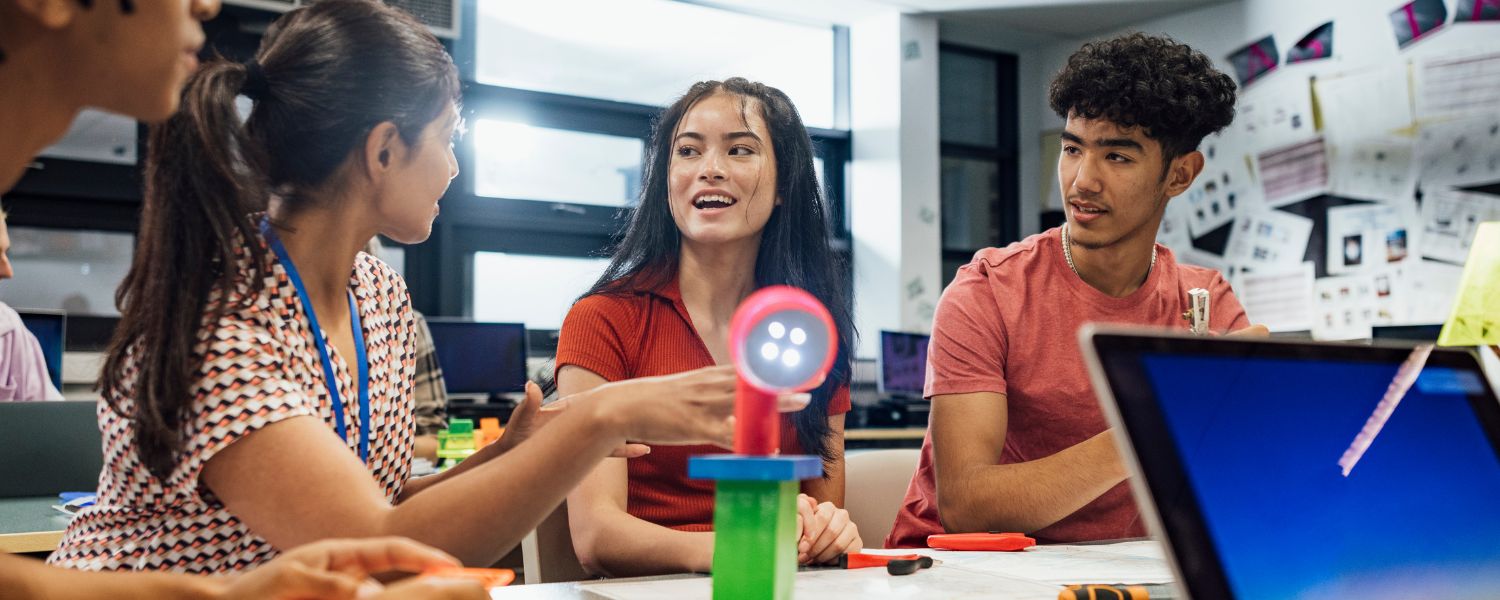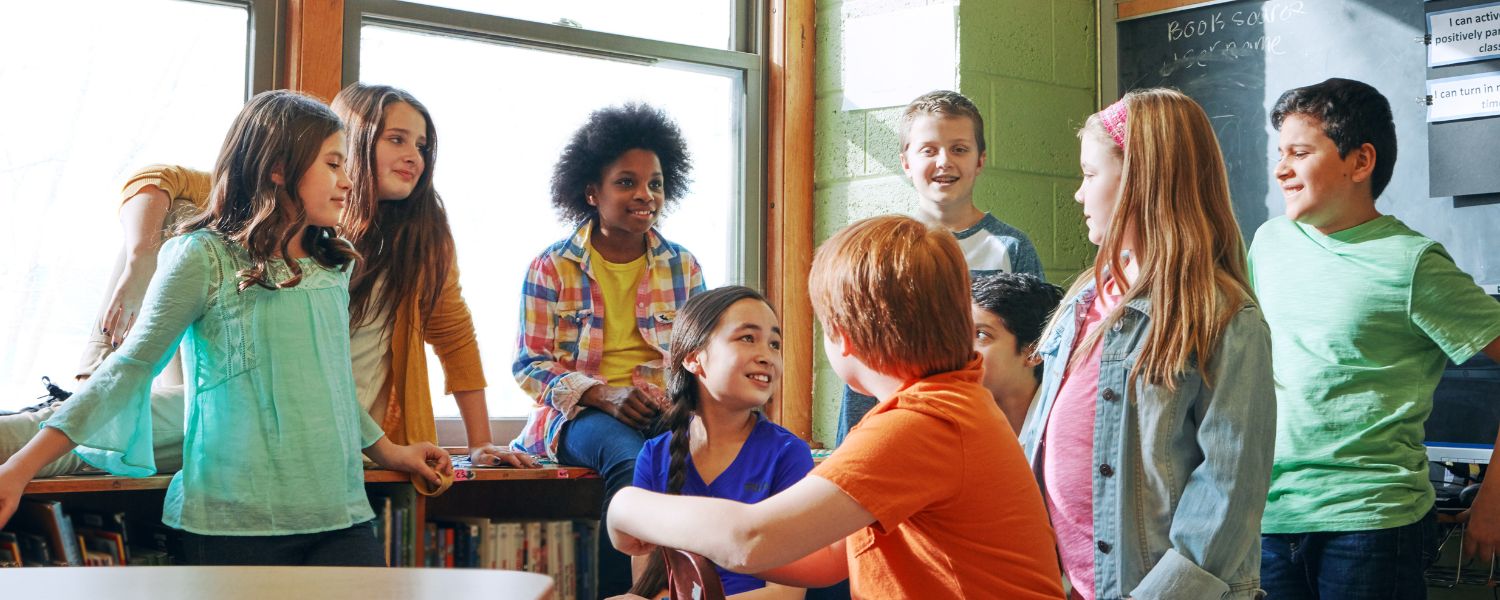
Education is the cornerstone of personal and societal development, with primary and secondary education playing pivotal roles in shaping individuals and communities. In this exploration, we will delve into the advantages of secondary education, focusing on its significance in preparing students from prep to year 12. We will also highlight the distinctive attributes of Faith Christian School of Distance Education.
The Crucial Role of Secondary Education
Secondary education bridges the foundational years of primary education and the specialised fields of higher education. During this phase, students undergo comprehensive academic, social, and personal development, setting the stage for their future endeavours. The advantages of secondary education are manifold, contributing significantly to an individual’s growth and societal progress.
1. Broadening Horizons

Secondary education introduces students to a more diverse and expansive curriculum. It goes beyond the basics taught in primary education, offering a wider range of subjects and fostering critical thinking skills. The exposure to various disciplines enables students to identify their interests and strengths, laying the groundwork for future academic and career choices.
2. Specialised Learning

As students progress through secondary education, they often have the opportunity to delve deeper into subjects of their choice. This specialisation allows them to develop expertise and passion in specific areas, preparing them for higher education and their chosen careers. Specialised learning is a key component in nurturing a well-rounded and skilled workforce.
3. Social and Emotional Development

Secondary education is not just about academic growth; it plays an important role in socially and emotionally shaping individuals. Students learn to navigate complex social dynamics, form meaningful relationships, and develop a sense of identity. This phase also helps them build resilience and emotional intelligence, crucial attributes for success in both personal and professional life.
Faith Christian School of Distance Education: A Distinctive Approach
In secondary education, schools like Faith Christian School of Distance Education stand out for their unique approach to nurturing students. As a school that values the importance of faith-based education, this school integrates principles of Christian faith with academic excellence, providing a holistic learning experience.
1. Faith Centered Curriculum

One of the distinguishing features of Faith Christian School is its incorporation of Christian values into the curriculum. This faith centered approach instils moral and ethical principles in students, contributing to their character development. The school recognises the importance of academic knowledge and the cultivation of virtues that will guide students in their personal and professional lives.
2. Flexibility in Learning

Distance education is key to Faith Christian School’s strategy, allowing students to access quality education from anywhere. This flexibility is particularly beneficial for students facing geographical constraints or having unique learning needs. The school embraces technology to provide a comprehensive education experience transcending physical boundaries.
3. Personalised Guidance

Recognising the diverse needs of students, Faith Christian School places a strong emphasis on personalised guidance. Teachers and mentors work closely with students, understanding their strengths, challenges, and aspirations. This personalised approach guarantees that every student gets the necessary support to excel academically, emotionally, and spiritually, fostering holistic growth and development.
4. Integration of Faith and Learning

Faith Christian School of Distance Education seamlessly integrates faith and learning. This approach underscores the interconnectedness of knowledge and spirituality, fostering an environment where students can explore academic subjects through the lens of their faith. This integration enhances the educational experience, providing a foundation beyond the classroom.
The Importance of Secondary Education in Shaping Futures
The significance of education cannot be emphasised enough, and secondary education stands as a crucial cornerstone in moulding both individual’s and society’s collective future. This phase marks a pivotal transition for students, moving from the fundamental teachings of primary education toward the specialised expertise and understanding essential for higher education and successful professional pursuits.
1. Preparation for Higher Education

Secondary education is a critical preparatory stage for higher education, equipping students with the intellectual tools and academic prowess essential for university-level studies. The curriculum becomes more specialised, laying the groundwork for in-depth exploration of subjects and fostering critical thinking skills.
This phase introduces students to advanced concepts, preparing them for the rigours of tertiary education. Furthermore, encountering a wide range of subjects aids students in recognising their academic inclinations and passions, enabling them to make well-informed decisions about their future educational journeys.
The skills honed during secondary education, including research, analysis, and effective communication, are invaluable assets as students transition to higher learning institutions.
2. Skill Development

Beyond acquiring academic knowledge, secondary education significantly emphasises skill development. Students are engaged in various extracurricular activities, including sports, arts, and leadership programs.
These activities contribute to developing essential life skills such as teamwork, time management, and adaptability. In the dynamic landscape of the 21st century, where employers increasingly value soft skills, secondary education becomes crucial for nurturing a well-rounded set of competencies.
Cultivating these skills ensures that students are academically proficient and equipped with the practical abilities necessary for success in their future careers and personal lives.
3. Career Readiness

Secondary education plays a pivotal role in readying students to face the professional challenges they’ll encounter within their chosen career paths. The specialised knowledge gained during this phase directly applies to various fields, providing a foundation for future vocational success.
Guidance in careers and vocational programs additionally assists students in comprehending the complexities of various professions, empowering them to make well-informed choices about their career paths. Additionally, internships, workshops, and real-world experiences offered during secondary education expose students to the practical aspects of their desired professions, enhancing their readiness for the demands of the workforce.
The emphasis on career readiness ensures that students graduate with theoretical knowledge and the practical skills and insights needed to excel in the professional arena.
4. Citizenship and Social Responsibility

Secondary education goes beyond individual academic growth; it holds significant importance in moulding conscientious and actively involved individuals within society. Students are exposed to lessons on civic engagement, how our democracy works, ethical behaviour, and the importance of contributing to their communities.
This broader perspective fosters a sense of social responsibility, encouraging students to actively participate in community service and advocate for positive societal change. Secondary education becomes a platform for instilling values of empathy, tolerance, and inclusivity, creating a generation of knowledgeable citizens aware of their roles in building a just and equitable society.
Prioritising citizenship and social responsibility guarantees that upon graduation, students possess a comprehensive awareness of their influence on the world, inspiring them to contribute constructively to the communities they integrate into as adults.
Conclusion
The advantages of secondary education are instrumental in shaping individuals into well-rounded, informed, and responsible members of society. Faith Christian School of Distance Education embodies an unparalleled approach to secondary education, merging academic distinction with a perspective centred on faith and values. As we continue to recognise the importance of secondary education and its impact on individuals and communities, it is crucial to support schools that prioritise students’ holistic development, preparing them for academic success and a purposeful and fulfilling life.
